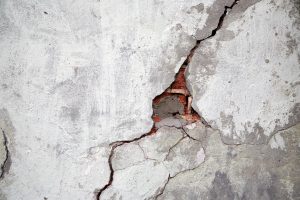The Minister for Emergency Situations in Kazakhstan faces a possible layoff after the departments under his ministry performed poorly in response to an earthquake that rattled the population in the south of the country.
On January 25, during a meeting on seismic safety in Almaty, Kazakhstan’s President Kassym-Jomart Tokayev reprimanded Minister Syrym Sharipkhanov, who was appointed only in June 2023. According to Tokayev, the response was inadequate and impractical.
Almaty is Kazakhstan’s largest city and the most affected by the recent wave of earthquakes that shook the region over the course of four days. At the epicenter of the quakes, in China’s Xinjiang region, the sensors showed a magnitude of 7.1. At least three people died in China as a result of the earthquake.
In Kazakhstan, a few dozen people reported minor injuries. Some tried to escape their homes by jumping out of windows.
This, according to Tokayev, was a symptom of both the authorities’ and the people’s unpreparedness.
“Frankly speaking, during the emergency situation in Almaty, the relevant authorities were not fully prepared for an immediate response. The residents were confused, and did not know how to behave. Most people didn’t even have their ‘emergency suitcases’ ready. This should be taught to children in kindergartens and schools,” Tokayev said.
SMS alerts took several hours to reach residents’ cell phones, according to Vice Minister of Digital Development Askhat Orazbekov. He passed the buck to the telecom companies.
Around 800 people called the hotline of the Ministry of Emergency Situations in the initial hours after the earthquake, while thousands left their homes in a panic and flooded the roads of Almaty, worsening all-too-familiar traffic jams.
Aftershocks were felt in the following days, contributing to fear among the population.
Prime Minister Alikhan Smailov also linked the injuries suffered by people who were trying to escape their homes with the slow response from the authorities.
“Without timely information and clear instructions, people panicked. Their rash actions, such as jumping from the second or third floor, caused suffering,” Smailov said, while noting that the Ministry of Emergency Situations and the local government failed to coordinate.
The reaction of the people to the government’s confused first response was of anger.
In 2022, the government of Almaty signed a contract for the procurement of an automated early warning system for earthquakes with a company that local media linked to Nurali Aliyev. Aliyev is the son of former President Nursultan Nazarbayev’s eldest daughter Dariga.
After the recent earthquake, the Ministry of Digital Development said they would implement an instant notification system. This is essentially the promise of a duplicate of what was already supposed to be in place, critics said.
Pictures of cracks in walls and other minor structural damage popped up in social media, alongside statements of fear and distress. News about Almaty’s distance from the epicenter was also distributed after citizens checked global earthquake websites and later confirmed by the local authorities.
At every emergency situation, be it forest fires or a methane leak, the Kazakh authorities try to shift responsibility for the response onto careless people, negligent companies, or local departments. Individual culprits are found and punished, leaving potential threats unattended and broader bureaucratic and governance failures unaddressed.
While Tokayev keeps reshuffling ministers, the next natural or industrial crisis looms around the corner, and Kazakhstan’s authorities continue to lack the necessary capabilities to face it.

































